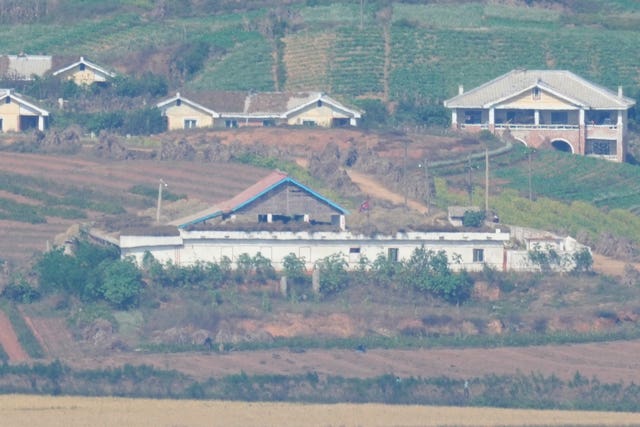North Korea vows to permanently block border with southern neighbours
The country’s military said it was boosting front-line defences to cope with ‘confrontational hysteria’ by South Korean and US forces.

North Korea’s military said it will permanently block its border with South Korea and boost its front-line defence posture to cope with “confrontational hysteria” by South Korean and US forces.
Wednesday’s announcement did not include an expected constitutional revision to formally designate South Korea its principal enemy and codify new national borders.
While the moves were likely a pressure tactic, it is unclear how they will affect ties with South Korea since cross-border travel and exchanges have been halted for years.
North Korea’s military said it will “completely cut off roads and railways ” linked to South Korea and “fortify the relevant areas of our side with strong defence structures,” according to the official Korean Central News Agency (KCNA).

It cited what it called various war exercises in South Korea, the deployment of US strategic assets and its rivals’ harsh rhetoric.
South Korean officials earlier said North Korea had been adding anti-tank barriers and reinforcing roads on its side of the border since April in a likely attempt to boost its front-line security posture and prevent its soldiers and citizens from defecting.
KCNA earlier said the Supreme People’s Assembly met for two days this week to amend the legal ages of North Koreans for working and participating in elections.
But it did not say whether the meeting dealt with leader Kim Jong Un’s order in January to rewrite the constitution to remove the goal of peaceful Korean unification, formally designate South Korea as the country’s “invariable principal enemy” and define the North’s sovereign, territorial sphere.
Some experts say North Korea might have delayed the constitutional revision, but others speculated it amended the constitution without announcing it because of its sensitivity.
Mr Kim’s order stunned many North Korea watchers because it was seen as breaking away with his predecessors’ long-cherished dreams of achieving a unified Korea on the North’s terms.





